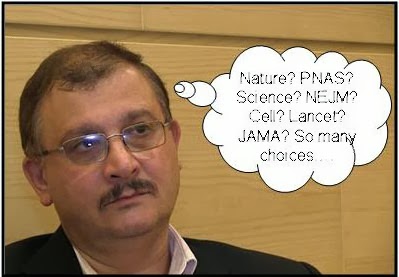The "Support Seralini" Challenge!
The 2012 work by Seralini et al has long been retracted, and months later friends and admirers of Prof Seralini still are screaming foul and injustice. Now the anti-GMO, pro-Seralini interests are screaming "Censorship!", claiming that their hero has been the victim of a company's influence over a scholarly journal.
However, there's only one person controlling censorship at this point-- Prof. Seralini himself!
Here's the easy fix-- if the work is as good as he says it is-- then he should simply publish it elsewhere. Today. Well, months ago. It was retracted by one journal. It is now unpublished. If that journal and its editorial board had some ax to grind as his supporters contend, then Prof Seralini can push the work down the road to the next willing publisher! Easier than growing lumps on a Sprague-Dawley rat.
Since retraction, Prof Seralini must be carefully considering which top-shelf journal he'll consider as a Plan B. Groundbreaking findings will find publication in science's best journals.
After all, if GMOs or Roundup were causing massive tumors and killing people, and they are used in 70% of the food supply, it would be a HUGE story- we're talking Nobel Prize here. Certainly one would look pretty sharp on Prof Seralini's mantle. Here he claims that both cause these problems. That's two Nobel Prizes, if shown conclusively, and that's one for either side of the mantle!
If the data in Seralini et al. 2012 really definitively showed that outcome, then any journal, even the most elite journals, would be crawling over each other to publish the work. My guess is that the delay in publication is that he's combing through the offers and looking up impact factors.
The other night there was a Twitter party to show support for Prof Seralini. You can find it with hashtag #SupportSeralini. But rather than licking wounds and screaming foul, why don't his emboldened minions just encourage Prof. Seralini to resubmit the work to a better journal? They could even check editorial boards to find editors that never worked for Monsanto, if there is such a thing. Seriously, if the methods and data are that good...
So if you really support Seralini, I hope that you'll become vocal and persistent in the resubmission of the work to one of science's premier journals. If censorship is real over at Environmental and Chemical Toxicology, then another journal will undoubtedly be thrilled to publish and promote such groundbreaking work.
It is conceivable that the data may find publication in a smaller low-impact title, like Carman's article in the Journal of Organic Systems, an apparently online only journal with no impact factor and limited editorial rigor. The credulous anti-GMs don't understand science, let alone what the quality of the venue means.
I do think I know the answer already. The work can't possibly be resubmitted because Monsanto already owns all of the journals and paid off all of the editors. And reviewers. Everywhere. In all countries. Forever. You get the picture.
Of course, none of this would prevent him from releasing all the data publicly. The only person censoring Seralini is Seralini himself.


